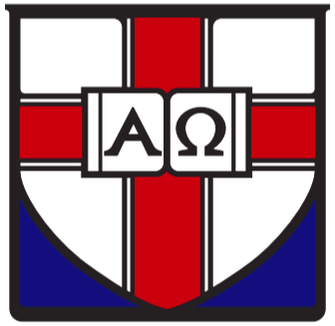What is Anglicanism?
Anglican Christianity, which stems from the Protestant Reformation, is one of the largest Christian traditions in the world. Christianity came to Britain in the first or second century, probably brought by merchants from Jerusalem. Tradition says that the gospel was brought there by Joseph of Arimathea. When Pope St. Gregory the Great sent a monk named Augustine to England in 597 to establish a Roman mission at Canterbury, he found an already established and robust British church with its own bishops and customs. The two church traditions (Rome and Britain) existed side-by-side until the Synod of Whitby in 663, when for the sake of Christian unity, it was decided that Roman customs would be followed. That relationship continued through most of Anglican church history. In 1208, a confrontation arose between King John and Pope Innocent III over rights in the church which led to England being placed under interdict and King John’s five-year excommunication. Good relations were interrupted again in the 1530’s, when King Henry VIII, desiring to obtain an annulment of his marriage, renounced the jurisdiction of the pope or any other foreign bishop in the English realm. Communion was restored briefly in 1553 but unfortunately, relations were severed again in 1570 with the excommunication of Elizabeth I by Pope Pius V. The Church of England became an independent body at that point and would continue to follow its own laws and customs thereafter.
Anglicanism in America
The Anglican church in the American colonies became a separate ecclesial body along with the birth of the United States after the revolutionary war. Anglicans used the name “Episcopalian” almost exclusively after the war. However, they noted that this new Episcopal Church “is far from intending to depart from the church of England in any essential point of doctrine, discipline, or worship, or further than local circumstances allow” (The Book of Common Prayer, p.11). The word “episcopal” comes from the Greek word episcope (overseer) that the New Testament uses for the office of bishop who oversees a local church. The word “church” comes from the Greek word ekklesia (assembly) that the New Testament uses for God’s people gathered into an assembled congregation. So the term “episcopal church” means a church overseen by bishops, according to the New Testament model.
What do Anglicans believe?
As disciples of our Lord Jesus Christ, Anglicans share with other Christians the historic biblical faith of the undivided Church of the first millennium. We believe the doctrines taught in the Bible and find our statements of belief in the historic Creeds, the writings of the early Church Fathers, the Ecumenical Councils of the Church, the Catechism of the Book of Common Prayer, the Thirty-Nine Articles of Faith, and in the language of our prayers.
CREDITS: The above description of Anglicanism was taken from the website of Christ the King Church in Atlanta, GA, led by Rev. Tony Melton. To check out their website and ministries, see https://www.christthekingatl.com/
TO LEARN MORE ABOUT ANGLICAN BELIEF AND PRACTICE read this: http://www.rechurch.org/documents/anglican_belief_practice.pdf
TO LEARN MORE ABOUT ANGLICAN HISTORY, CHECK OUT REV. CHARLES ERLANDSON'S "TRACTS FOR OUR TIMES": https://northamanglican.com/author/fr-charles-erlandson/page/2/
TO LEARN MORE ABOUT ANGLICAN BELIEF AND PRACTICE read this: http://www.rechurch.org/documents/anglican_belief_practice.pdf
TO LEARN MORE ABOUT ANGLICAN HISTORY, CHECK OUT REV. CHARLES ERLANDSON'S "TRACTS FOR OUR TIMES": https://northamanglican.com/author/fr-charles-erlandson/page/2/
